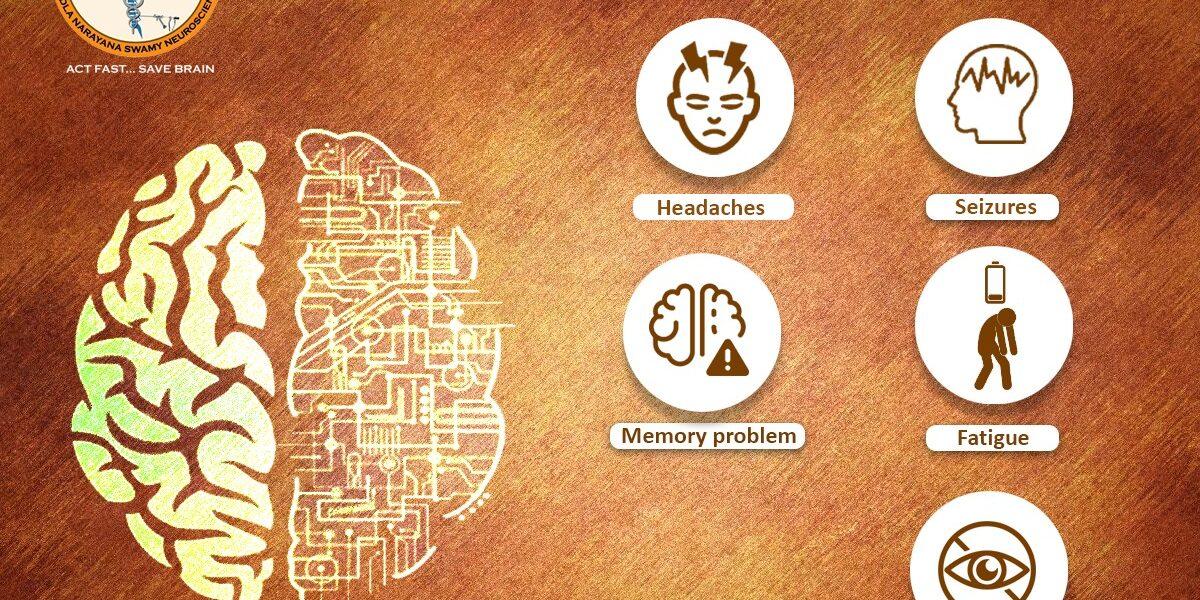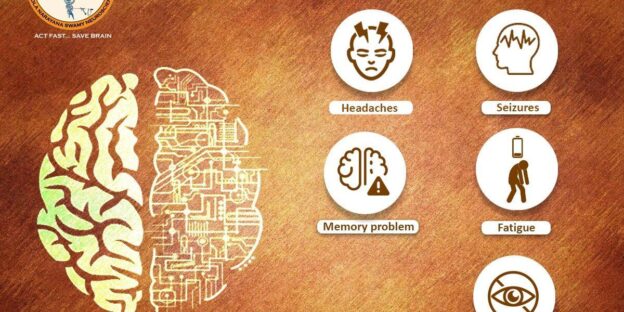Brain Cancer – The best treatment is at Dr Raos, Guntur
Introduction
Cancer is a class of diseases in which a group of cells display uncontrolled growth (division beyond the normal limits), invasion (intrusion into adjacent tissues), and sometimes metastasis (spread to other locations in the body via lymph or blood). Brain cancer, specifically, is an abnormal growth of cells within the brain. It can occur in both children and adults, though brain tumors are most common in people over the age of 60. There are many different types of brain cancer, each with its own set of symptoms, treatment options, and prognosis. Brain cancer is relatively rare, accounting for only about 2% of all cancers diagnosed each year. However, it is one of the most deadly types of cancer. The five-year survival rate for people with brain cancer is just 34%. This is largely due to the fact that brain tumors are very difficult to treat. They are located deep within the brain, making them difficult to reach with surgery or radiation. In addition, because the brain is such a complex organ, it is difficult to target cancer cells with chemotherapy without damaging healthy cells. As a result, most people with brain cancer will eventually die from their disease. There are many different types of brain cancer, each with its own set of symptoms, treatment options, and prognosis. The most common type of brain cancer is glioma, which accounts for about 80% of all cases. Gliomas can be further divided into astrocytomas and oligodendrogliomas, depending on the type of cell that is affected. Other types of brain cancer include meningiomas, medulloblastomas, and pituitary adenomas. Looking for the best treatment for your brain tumor or brain cancer, look no further than Dr Raos hospital, Guntur, the best neurosurgery and spine surgery hospital. Dr Rao is the fellowship trained neurooncologist and stereotactic radiosurgeon.
causes
There is no one definitive answer to the question of what causes brain cancer. However, there are a number of possible contributing factors that doctors and researchers believe may play a role in its development. These include exposure to certain toxins and chemicals, previous radiation therapy to the head or neck, and certain genetic conditions. Additionally, brain tumors are more common in people over the age of 60. While the exact cause of brain cancer remains unknown, understanding the possible risk factors can help doctors better identify those who may be at a higher risk for developing the disease.
symptoms
The most common symptom of brain cancer is a headache. Other symptoms can include nausea, vomiting, seizures, drowsiness, and changes in mood or personality.
Diagnosis
There are a few different ways that doctors can diagnose brain cancer. The first is through a medical history and physical examination. Your doctor will ask you about your symptoms and health history. They will also do a physical exam. This can help them rule out other conditions that may be causing your symptoms. The next step is usually an imaging test. This can help your doctor see if there is a mass or tumor in your brain. The most common imaging tests for brain cancer are computed tomography (CT) scans and magnetic resonance imaging (MRI) scans. If an imaging test shows that you have a mass in your brain, the next step is usually a biopsy. During a biopsy, your doctor removes a small sample of tissue from the mass so it can be tested for cancer cells. There are a few different ways to do this, but the most common is to insert a needle into your brain to remove the tissue sample. Once the tissue sample is removed, it will be sent to a lab where it will be examined under a microscope. If cancer cells are found, your doctor will then work to determine what type of brain cancer you have.
treatment
There are a number of different treatment options available for brain cancer patients, and the best course of action will be determined by a number of factors, including the type and stage of the cancer, as well as the overall health of the patient. Surgery is often the first line of treatment for brain cancer, and it may be used to remove as much of the tumor as possible. In some cases, radiation therapy may be used before or after surgery to help kill any remaining cancer cells. Chemotherapy is another common treatment option for brain cancer, and it uses drugs to kill cancer cells. This treatment can be given intravenously (through an IV) or orally (in pill form). Targeted therapy is a newer type of treatment that uses drugs or other substances to specifically target and kill cancer cells while sparing healthy cells. This type of therapy is often used in combination with other treatments, such as surgery, radiation therapy, or chemotherapy. The decision about which treatment to pursue will be made by the patient and their medical team after careful consideration of all of the available options.
Chemotherapy and Radiotherapy
Chemotherapy and radiotherapy are two of the most common treatments for brain cancer. Chemotherapy uses drugs to kill cancer cells, while radiotherapy uses high-energy beams of radiation to kill cancer cells. Both chemotherapy and radiotherapy can be used as standalone treatments or in combination with each other.
Conclusion
In conclusion, brain cancer is a serious illness that can be difficult to treat. However, with the right medical care and treatment, many people with brain cancer can lead long and healthy lives. Chemotherapy and radiotherapy are often effective treatments for brain cancer, and new treatments are being developed all the time. If you or someone you know has been diagnosed with brain cancer, don’t hesitate to seek out the best possible medical care and treatment. Looking for the best treatment for your brain tumor or brain cancer, look no further than Dr Raos hospital, Guntur, the best neurosurgery and spine surgery hospital. Dr Rao is the fellowship trained neurooncologist and stereotactic radiosurgeon.


